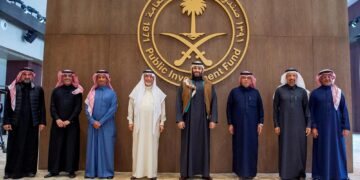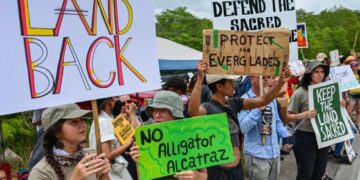Examining the Palestinian Authority’s Role in Sustaining Control Amidst Colonisation Challenges
The Israeli-Palestinian conflict remains one of the most intricate geopolitical struggles of our time, with the Palestinian Authority (PA) occupying a contentious position within this narrative. While officially established to represent and safeguard Palestinian interests, recent evaluations indicate that the PA’s governance may unintentionally reinforce patterns of territorial fragmentation and colonisation. This article explores how the PA’s administrative decisions, political strategies, and international collaborations contribute to maintaining a status quo that complicates Palestinian aspirations for sovereignty and justice. As regional tensions escalate, dissecting these dynamics is essential for understanding their broader impact on Palestine’s pursuit of autonomy.
Palestinian Authority: A Complex Actor in Occupation Continuity
Operating under immense pressure from both internal factions and external forces, the PA functions within a framework that often sustains existing occupation realities rather than dismantling them. By projecting an image of governance over certain territories, it inadvertently masks deeper systemic issues fueling Palestinian hardship. The PA’s focus on preserving stability—frequently through economic initiatives—can come at the expense of fundamental rights and freedoms for Palestinians living under occupation.
Critics highlight several concerning trends linked to this approach:
- Security Collaboration: The PA maintains close coordination with Israeli security agencies purportedly to uphold order but which some argue undermines resistance efforts.
- Suppression of Dissent: There is documented evidence of crackdowns on activists opposing both Israeli policies and internal governance practices.
- Economic Reliance: Heavy dependence on foreign aid tied to compliance with peace negotiations limits independent policy-making.
These factors collectively raise questions about whether the PA prioritizes institutional survival over genuine liberation.
Economic Struggles and Political Ramifications Under PA Rule
The economic environment shaped by the PA reveals persistent challenges such as soaring unemployment rates—currently estimated at around 45% in Gaza—and restricted access to vital resources due to movement limitations imposed by Israel. Despite efforts aimed at fostering development within its jurisdiction, many analysts argue that these initiatives fall short because they emphasize short-term political calm rather than sustainable growth models empowering local communities.
Politically, reliance on security cooperation with Israel has eroded public confidence among Palestinians who perceive such partnerships as tacit acceptance of their ongoing subjugation. This dynamic weakens the PA’s credibility both domestically and internationally when advocating for Palestinian rights in diplomatic arenas like the United Nations or during peace talks.
Amid these difficulties lies an urgent call from various sectors within Palestine for an autonomous governance framework—one capable not only of representing popular will but also breaking free from cycles perpetuating dependency.
Empowering Civil Society: Pathways Toward Genuine Emancipation
For meaningful progress toward liberation, grassroots movements must be revitalized through inclusive strategies emphasizing community empowerment across diverse demographics including youth groups, women leaders, and marginalized populations. Key approaches include:
- Forming Broad-Based Alliances: Uniting different social sectors fosters resilience against divisive tactics.
- Nurturing Internal Dialogue: Encouraging conversations between rival factions can bridge divides hindering collective action.
- Diversifying Communication Channels: Leveraging social media platforms enhances outreach beyond traditional boundaries.
- Cultural Education Initiatives: Programs highlighting Palestinian heritage strengthen identity amid adversity.
On a wider scale, civil society organizations should intensify advocacy efforts by engaging international human rights mechanisms more effectively—for instance:
- Mediating Documentation Efforts: Systematic recording of violations provides credible evidence supporting global accountability measures.
- Cultivating Global Solidarity Campaigns: Mobilizing worldwide awareness amplifies pressure against injustices faced by Palestinians today.
- Pursuing Strategic Partnerships With International Networks: Collaborations increase visibility in forums shaping global opinion.
< / li >
< / ul >
As developments unfold across Israel – Palestine relations , scrutiny surrounding the PA ’ s role intensifies . Many observers contend its current policies insufficiently advance statehood ambitions while potentially enabling prolonged colonisation processes . With shifting international priorities , stakeholders must carefully evaluate how engagement with or opposition toward the PA influences prospects for peace . Understanding these complex interactions remains vital not only for policymakers but also global citizens invested in Middle Eastern stability . Although uncertainty prevails regarding future trajectories , voices championing authentic reform continue resonating throughout Palestine — underscoring urgent demands for renewed tactics aligned with justice , dignity , and self-determination.















